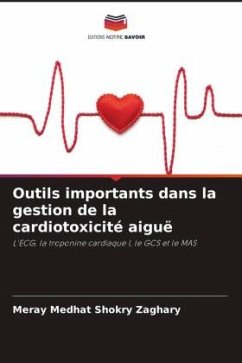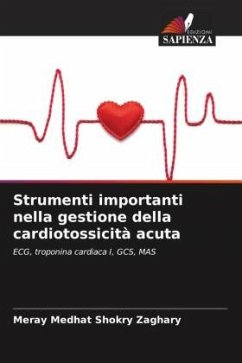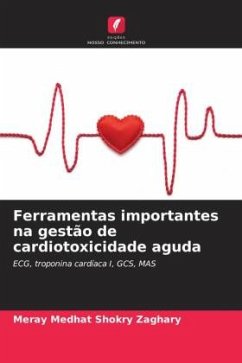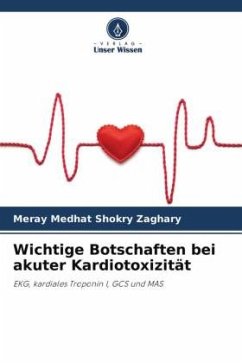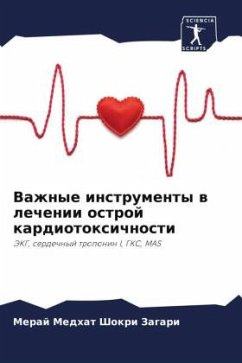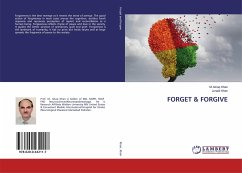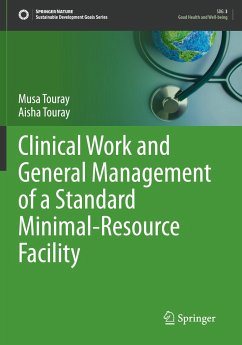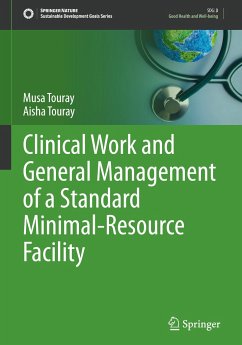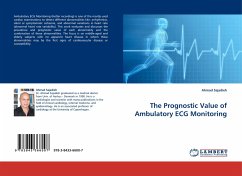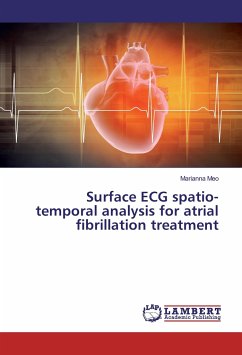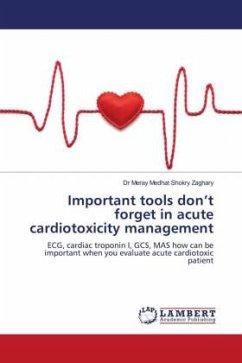
Important tools don't forget in acute cardiotoxicity management
ECG, cardiac troponin I, GCS, MAS how can be important when you evaluate acute cardiotoxic patient
Versandkostenfrei!
Versandfertig in 6-10 Tagen
40,99 €
inkl. MwSt.

PAYBACK Punkte
20 °P sammeln!
This study showed that:- The majority of the studied patients (94%) survived and (6%) of the patients died. - ECG test sensitivity was 100%, specificity was 46.8%, PPV of ECG was 10.7% and NPV was 100%.- MAS score, GCS score, and serum cTnI were very highly significantly increased with death hence could be used as predictors for the mortality.- Serum CK-MB couldn't be used as an outcome predictor.- Serum cTnI>1.0ng/ml had sensitivity 100% and specificity 89.4% and NPV 100% with excellent diagnostic characteristic (accuracy rate 96.4%).- GCS at cut off 10 had corresponding sensitivity 100% and...
This study showed that:- The majority of the studied patients (94%) survived and (6%) of the patients died. - ECG test sensitivity was 100%, specificity was 46.8%, PPV of ECG was 10.7% and NPV was 100%.- MAS score, GCS score, and serum cTnI were very highly significantly increased with death hence could be used as predictors for the mortality.- Serum CK-MB couldn't be used as an outcome predictor.- Serum cTnI>1.0ng/ml had sensitivity 100% and specificity 89.4% and NPV 100% with excellent diagnostic characteristic (accuracy rate 96.4%).- GCS at cut off <9.5 had sensitivity 100% and specificity 77.3% and NPV 100% with excellent diagnostic characteristic (accuracy rate 92.4%).- MAS score at cut off value > 10 had corresponding sensitivity 100% and specificity 74.5% and NPV 100% with excellent diagnostic characteristic (accuracy rate 90.8%). - Performing an ECG for every patient with acute poisoning help in early recognizing the possible cardio-toxicity by simple and non-invasive tool.- The protocol of management will be the same in acute toxicity by cardiac drugs and non-cardiac toxins.



